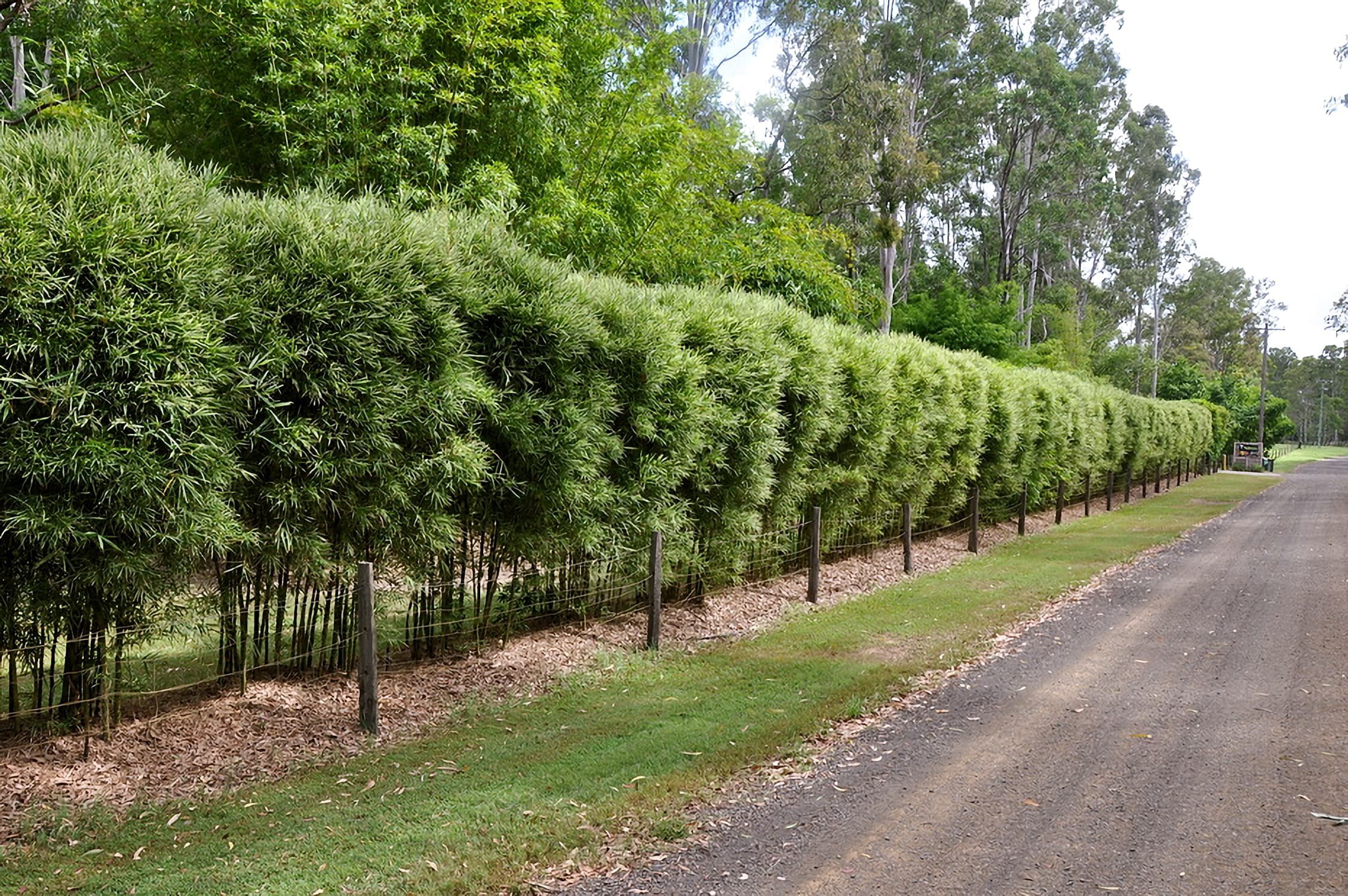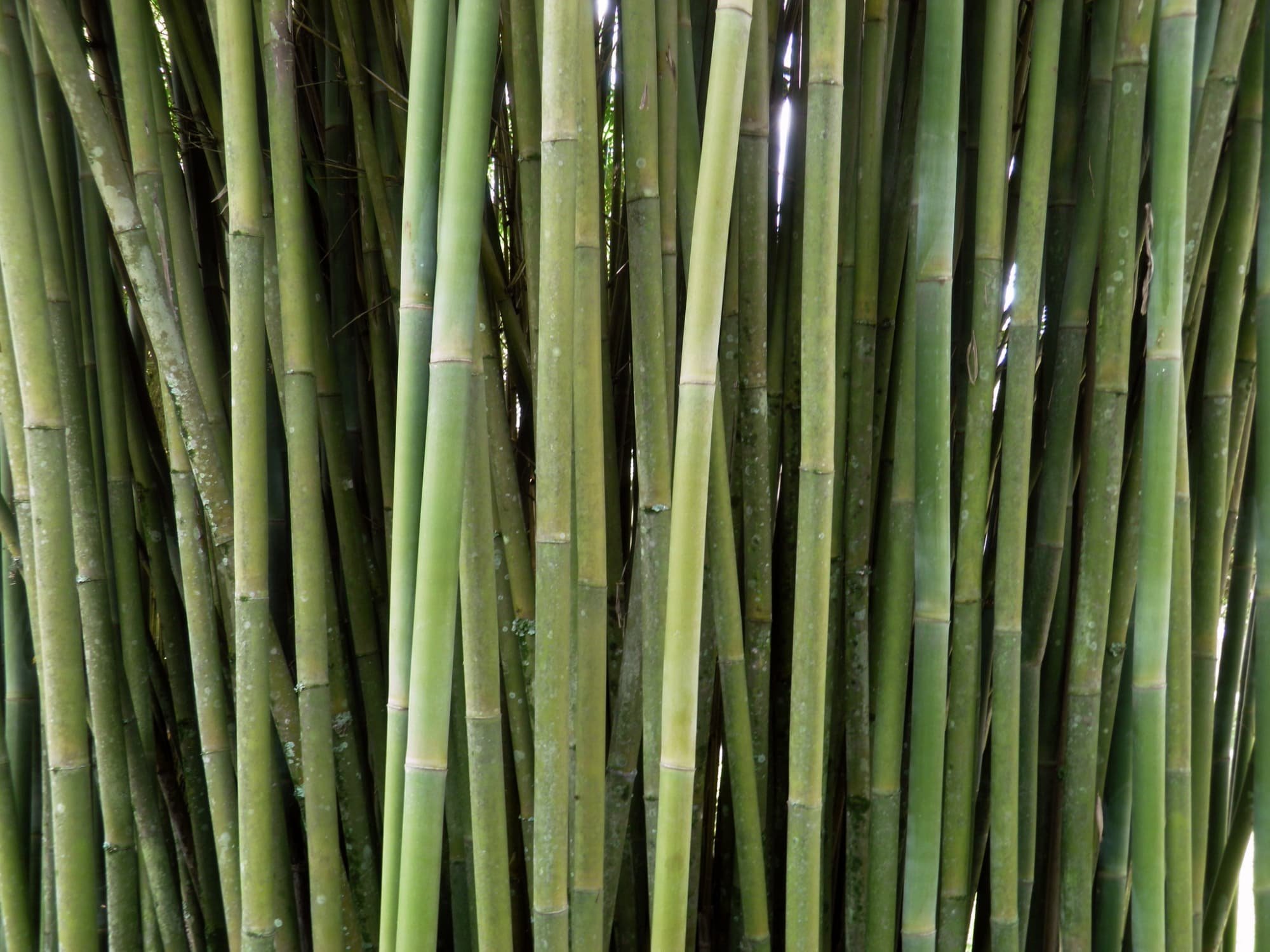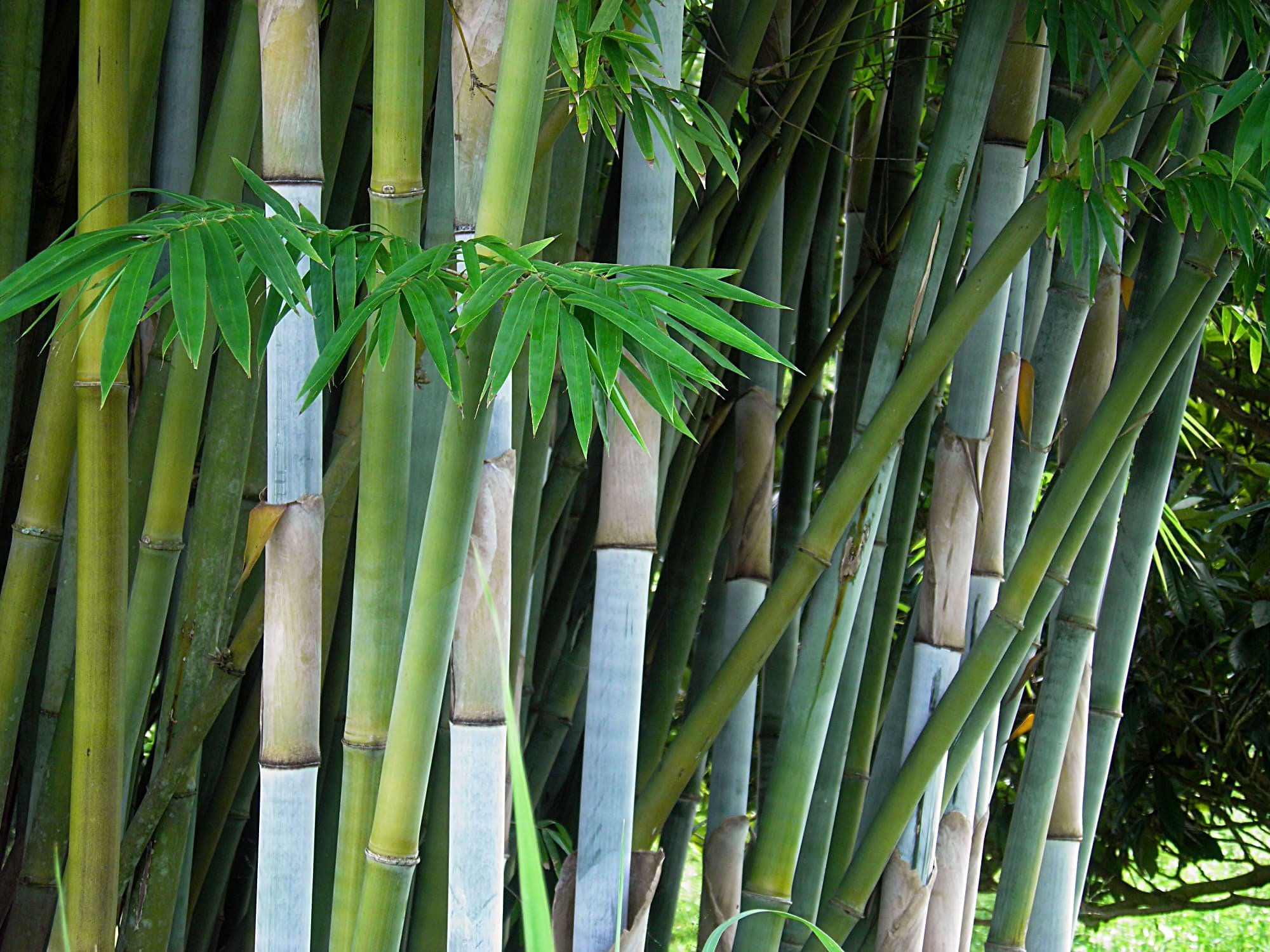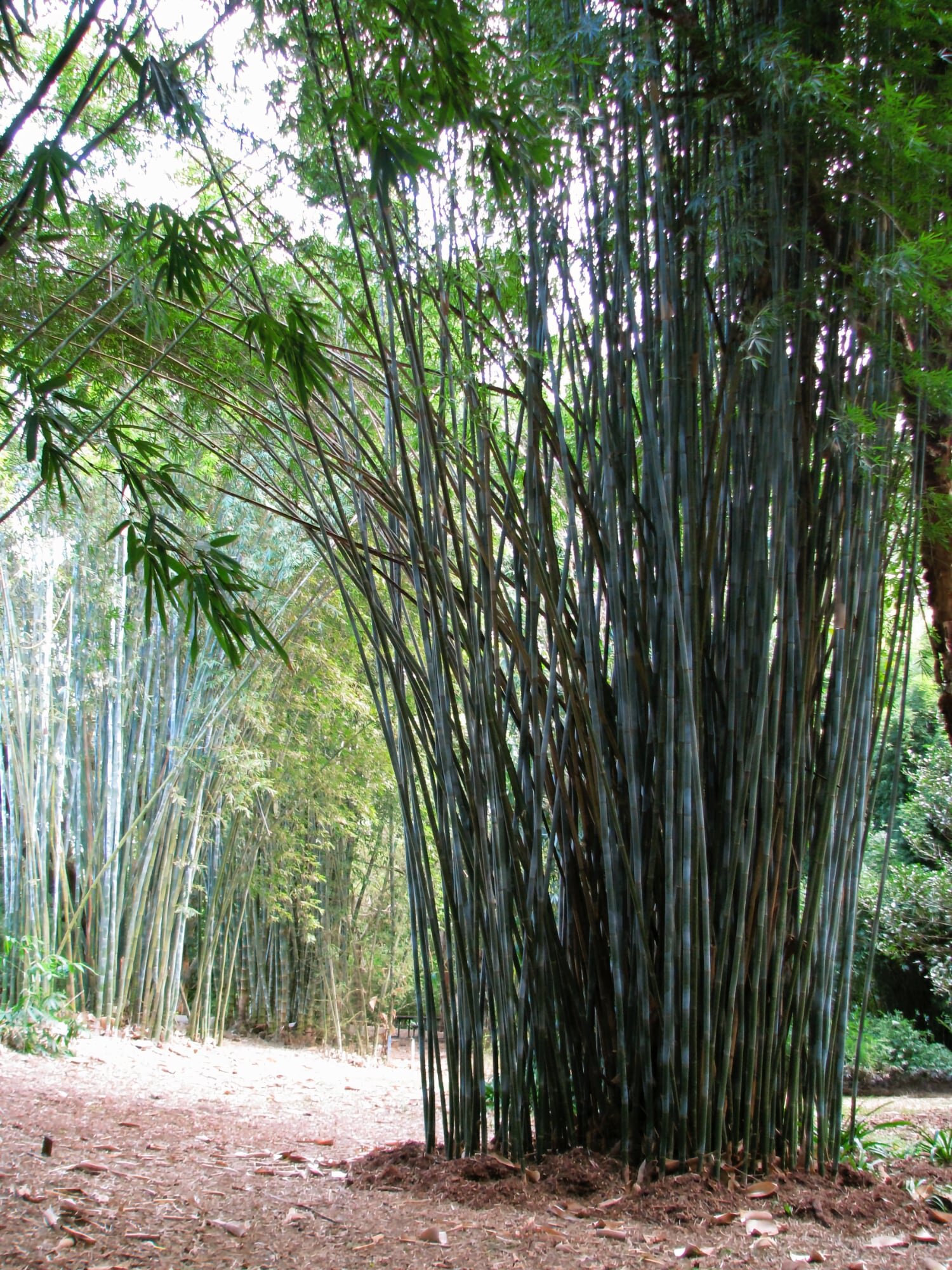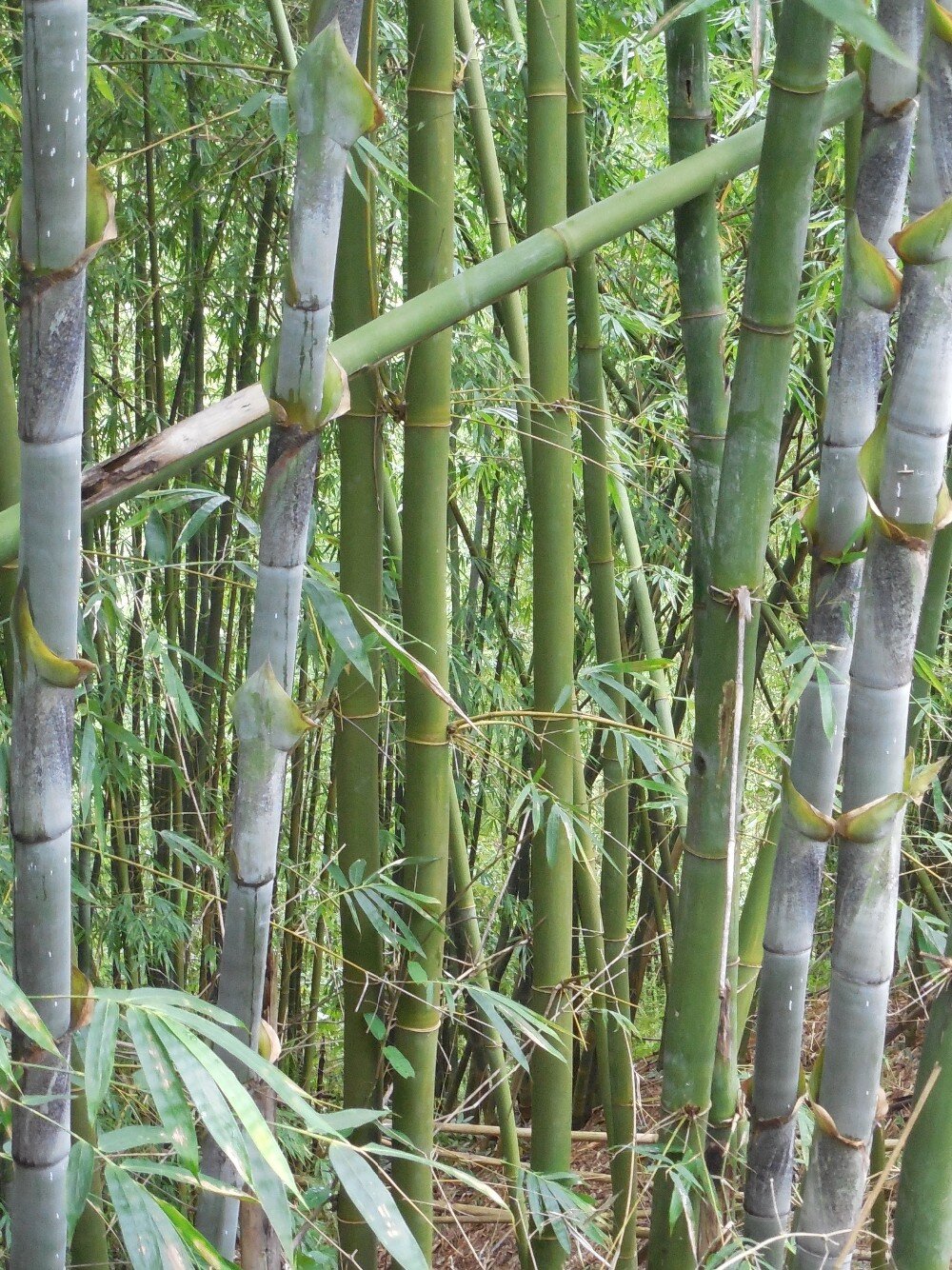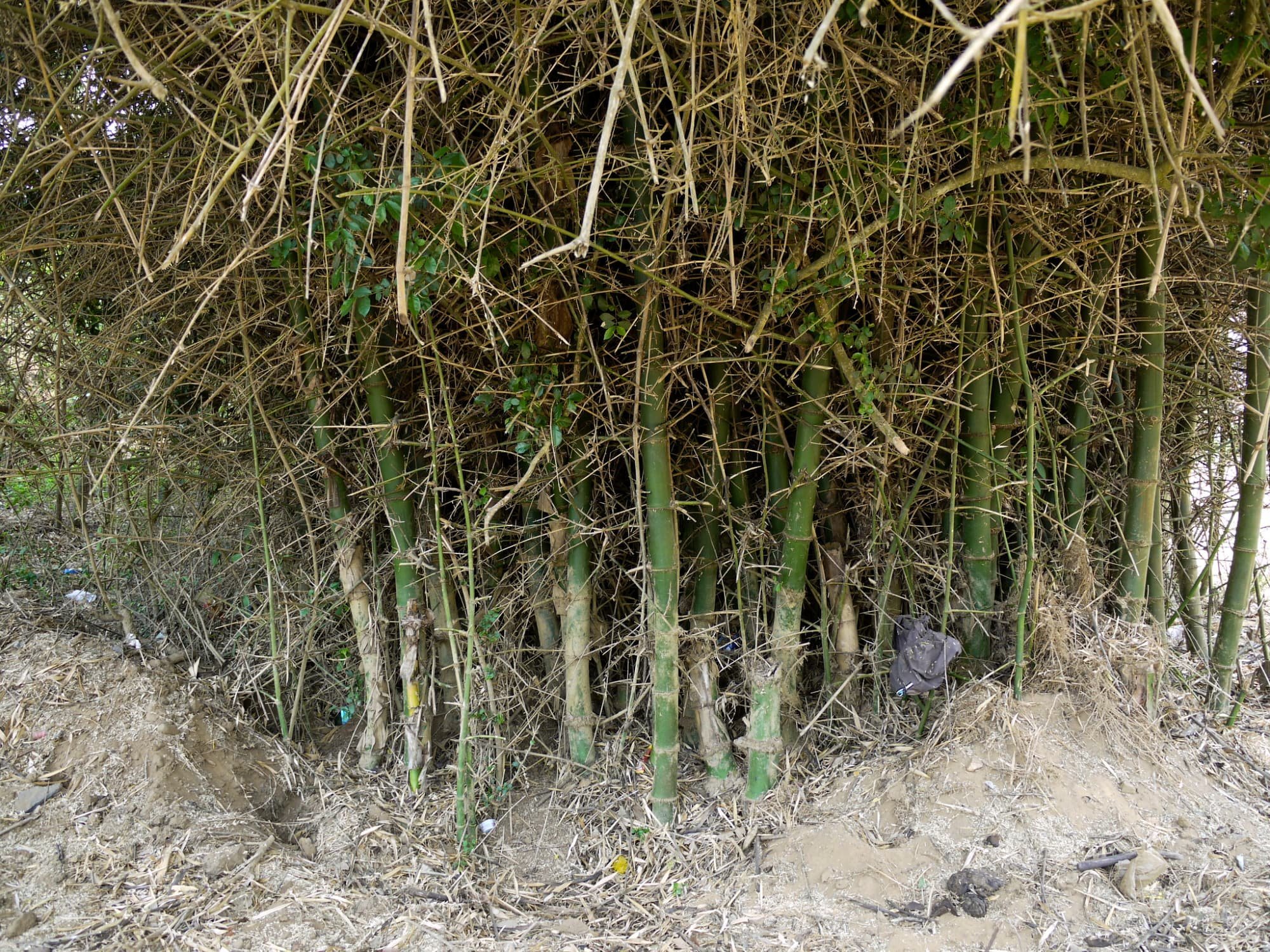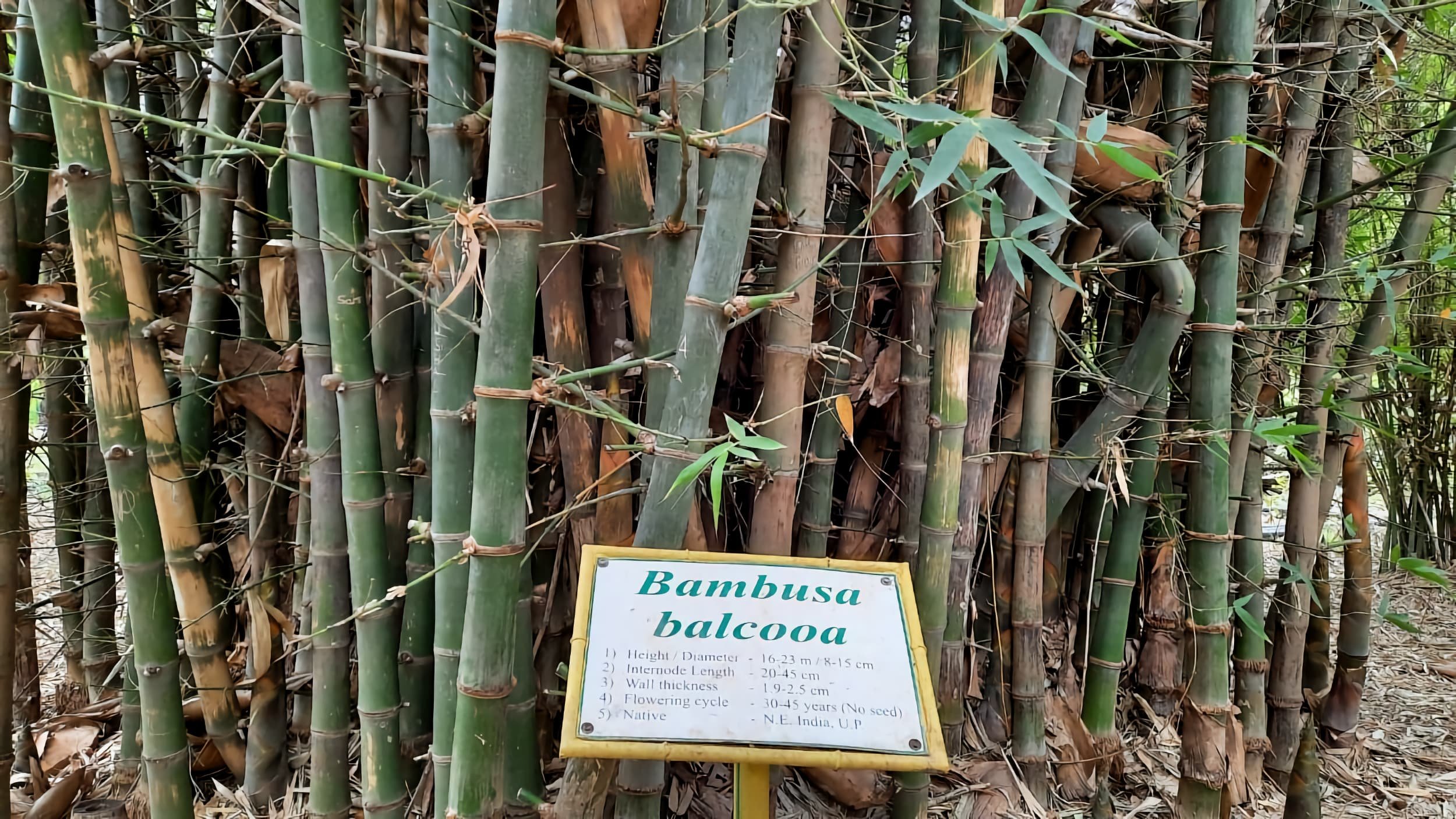Bambusa burmanica
Bambusa burmanica also known as Burmese Weavers Bamboo is a medium-sized tropical and subtropical clumping bamboo originating from Burma and Thailand. This bamboo is used in construction and basket making.
Summary
| Height | 10 - 19 m |
| Diameter | 7 - 10 cm |
| Growth Habit | Clumping |
| Climate | Tropical - Subtropical |
| Hardiness | 0°C |
| Origin | Burma - Thailand |
Photos
Culms
Bambusa burmanica culms are between 10-19 m tall and 7-10 cm in diameter. The pale green internodes are 25-40 cm long, and almost solid near the base. Nodes have a white ring of small hairs and waxy powder. No rootlets at the lower nodes.
Culm Sheaths
Green when young, and turning pale along the margins when old.
Branches
Several to many clustered branches with 1-3 larger dominant branches. Lower branches are spiny.
Leaves
Leaves are lance-shaped and between 25-30 cm long and 3.5-5 cm broad.
Flowering
The flowering of this bamboo was reported in the year 1890 from Katha District of Myanmar (Gamble, 1896).
Habitat
On dry hill slopes, in evergreen forest, dry deciduous forest, open grassy pine forest, up to 1,300 m altitude.
Uses
The local inhabitants use Bambusa burmanica for roofing, thatching, construction and basket making.
Origin
BURMA: upper part: from Mergui District (Tenasserim) to Katha District (Sagaing); THAILAND: northern part.


